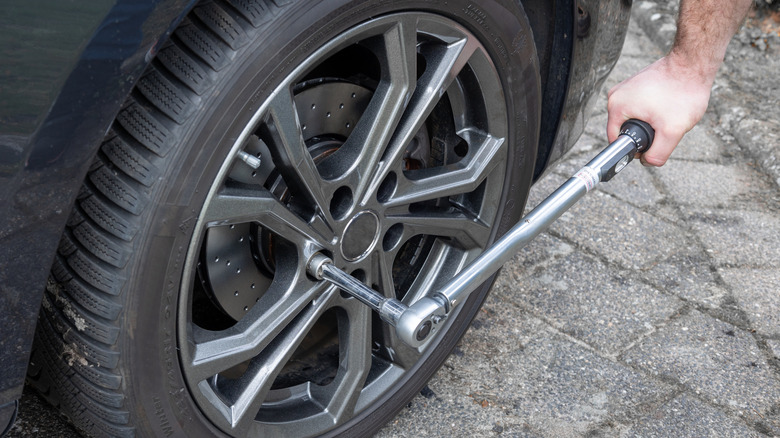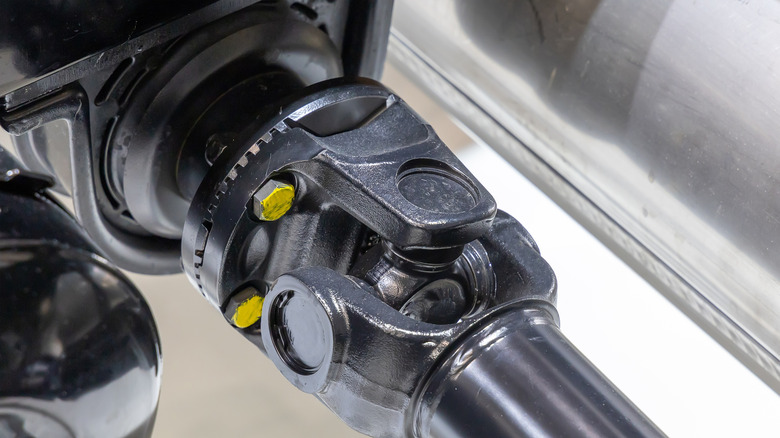Do Extensions On Socket Wrenches Increase Torque?
Socket wrenches are a real need-to-have for both DIY and professional toolkits. Without a decent set, working with nuts and bolts is a whole lot more challenging (not to mention labor-intensive). Socket wrenches are designed to make fastening and unfastening bolts a lot more efficient thanks to the use of a ratcheting mechanism. This mechanism lets you apply torque in one direction while the handle resets freely in the opposite direction. With this, you can continue to rotate a fastener without needing to lift the tool and reset every time. (This really comes in handy when working in tight or awkward spaces.)
One big question about socket wrenches has persisted for decades now: Does using an extension bar — a long metal piece added between the socket and wrench — increase the amount of torque delivered to the fastener? At first, it might seem logical to assume that a greater extension would mean more torque, but basic mechanical principles suggest otherwise. In reality, extensions have no substantial impact on torque.
Understanding the mechanics of socket wrenches
A socket wrench's torque depends on two things: the force you apply and the mechanical leverage of the wrench's length. Broadly speaking, torque is a result of force and distance from the pivot point (in this case, the bolt). However, this distance is less about the space between the socket and the bolt than the length of the wrench handle.
It's all math: No matter how long the extender is, the socket wrench will exert the same amount of torque (just as long as the handle remains the same length). One look at YouTube, and you'll see plenty of practical tests that prove this. Whether it be a 3-inch extension or a three-foot one, the torque stays the same within an acceptable margin of error.
Many of those who work on cars already know this, but it bears repeating: extensions can certainly impact accessibility and control, but they do not alter the mechanical torque. Unless the extension itself is bending or flexing, the amount of torque will remain consistent.
How universal joints factor into the equation
Following this logic, a universal joint (like the ones you can grab at your local Auto Zone) would have a negative impact on torque in a way that extensions wouldn't. That's because universal joints change the amount of distance from the pivot point. It's all part of the equation.
Socket extensions might not change your torque output like a universal joint would, but they do have an impact on several other aspects of the tool's performance. Most obviously, they improve reach. Extensions let you access fasteners located deep within an engine compartment, behind hard-to-reach panels, or underneath heavy machinery. They can also make work more comfortable by keeping you from having to bend into some awkward position in order to reach a bolt.
So, rather than worrying about torque loss, focus on using quality extensions and the correct torque wrench setting for your job. With the right setup, you'll enjoy precise and consistent fastening, even in the most hard-to-reach corners of your next project.


